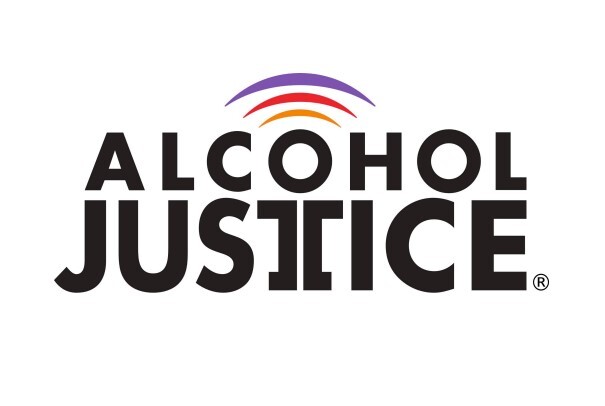Alcohol Advocacy Group Warns:
Removing Daily Alcohol Recommendations “Will Make America Have AUD”
SAN RAFAEL, Calif., June 19, 2025 /PRNewswire-HISPANIC PR WIRE/ — Alcohol Justice strongly objects to the United States Department of Health and Human Services (HHS) and Department of Agriculture (USDA)’s plans to eliminate vital protective and life-saving recommendations around alcohol consumption. As reported by Reuter’s, HHS insiders expect the forthcoming USDA dietary guidelines to drop the current recommendation that men drink no more than 2 drinks per day, and women no more than 1. The only guidance remaining would encourage “moderation,” an ineffectual and unclear threshold favored by Big Alcohol.

“This change will absolutely tie into MAHA—it will make America have an alcohol use disorder,” said Terry Cunningham, Board President for Alcohol Justice. “It ignores the data, it ignores the health of our communities, and it abandons the USDA’s duty to help people make informed decisions about their own health.”
Alcohol-related mortality, already one of the leading preventable causes of death in the United States, has skyrocketed in recent years. The number of deaths climbed 29% between 2016 and 2021, according to a 2024 CDC report from an alcohol harm monitoring team recently disbanded as part of Sec. Kennedy’s recent restructuring of that institution. Although acute alcohol-related deaths, including motor vehicle crashes, suicides, and homicides, capture much of the headlines, over half of all mortality is due to the cumulative, chronic effects of overconsumption. Abandoning evidence-based guidance risks driving this death toll even higher.
“Every unit increase in population alcohol consumption results in roughly a unit increase in alcohol related problems,” said Rob Lipton, Director of Research and Development for Alcohol Justice. “USDA guidance should be based on this understanding, not on the message that’s best for the alcohol industry.”
The change follows a strange and contentious USDA Dietary Guidelines review process. The National Academies of Science, Engineering and Medicine, in a process shot through with conflicts of interest and industry influence, released a flawed report on the health impacts of drinking that downplayed many causes of morbidity and mortality with little scientific support. Shortly after, the U.S. Surgeon General’s office released an advisory emphasizing that cancer risk rises from the very first sip of alcohol. The Substance Abuse and Mental Health Services Administration was set to release a third paper highlighting a range of other risks from consumption; that report has not yet been released, but Alcohol Justice has archived a draft in case it joins the many other federal data resources scheduled for deletion. Yet despite the divergent findings and industry involvement, all three reports concur that the risk of harm and death rises rapidly above 2 drinks per day for men, 1 drink per day for women.
“The evidence is clear: there is no safe level of alcohol consumption,” said Thomas Gremillion, Director of Food Policy at Consumer Federation of America. “Even light drinking—less than 1 drink per day—has been shown to significantly increase the risk of cancers including breast cancer and esophageal cancer. The Trump Administration should use the Dietary Guidelines for Americans to help consumers make informed choices about alcohol rather than curry favor with Big Alcohol.”
According to insiders speaking with Reuter’s, the new guidance will lean heavily on “moderation.” “Moderate” and “responsible” drinking has been heavily promoted by the alcohol industry, despite (or because of) the fact that researchers have long known this messaging is ineffectual. Health guidance relying solely on the concept of personal moderation implies that there is a level of drinking under which no harm occurs—a myth that has been repeatedly debunked—and that the entire burden for avoiding that harm falls on the drinker.
“Effective alcohol use policy must involve comprehensive public health policy as the negative effects of alcohol consumption accumulate at the population level,” said Lipton, “whether it’s traffic fatalities, or violence, chronic illness.”
Despite the concerns that the USDA will fail in its duty to educate and inform the public, promising avenues still exist for better public health regulation. The U.S. Surgeon General’s advisory has called for a revision of the alcohol health warning label to properly communicate cancer risk, and the Trump Administration’s Surgeon General nominee is an outspoken critic of the alcohol industry. Meanwhile, the U.S. Tax and Trade Bureau has advanced a process to require nutrition labels, including advisories on alcohol content, on alcoholic beverages. Alcohol Justice applauds these steps forward, while asking community members to speak out against the USDA guideline changes.
“The decision to move away from the USDA guidelines is not set in stone,” said Raul Verdugo, Director of Advocacy for Alcohol Justice. “We also don’t have to watch friends and family members end up in a state of recovery—or the hospital—due to a lack of knowledge and/or guidance. We must stay vigilant, entrusting that Sec. Kennedy will adhere to the research and science that seeks to preserve preventable health outcomes and avoid premature morbidity.“
Alcohol Justice is a nonprofit based in San Rafael, California. It is dedicated to advancing evidence-based policy that protects public health and safety from the impact of the alcohol and other drug industries. For more information, please go to www.alcoholjustice.org.
CONTACT:
Carson Benowitz-Fredericks
Research Director
(917) 426-6443
Raul Verdugo
Director of Advocacy
(310) 689-9401
Logo – https://mma.prnewswire.com/media/147418/ALCOHOL_JUSTICE_LOGO_01.jpg
SOURCE Alcohol Justice






